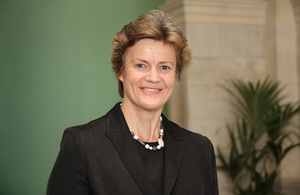Temporary closure of A345 to remove diseased trees
The Defence Infrastructure Organisation (DIO), together with its strategic partner, Landmarc Support Services (Landmarc), is carrying out a tree-felling clearance scheme to remove trees infected with ash dieback.
Thousands of ash trees across Salisbury Plain Training Area, as well as many more across the country, are infected with a disease called ash dieback. There is no cure or treatment for the disease and over time infected trees will weaken, causing branches to fall and trees to eventually collapse and die.
This presents a significant health and safety risk, especially alongside roads, public rights of way and woodland areas used by the public for recreation activities and military personnel for training. For the safety of road users it is therefore necessary to remove infected trees along the A345.
It has been decided, in consultation with Wiltshire County Council, to undertake the majority of closures over the school summer holiday to help minimise disruption. The closures will take place from 9:30am until 4:30pm on weekdays only from 10 August 2020. The work is expected to be completed at the end of October. The closures will be rolling so only one section of the road will be closed at a time. Details of specific closures as they occur will be available on gov.uk using the link below, on the @mod_dio twitter feed or on the website one.network.
Lieutenant Colonel Tim Jalland, DIO’s Commander South West Training Estate, said:
While it is unfortunate that these trees must be felled, it is sadly necessary for the protection of everyone using the A345, whether military or civilian. We apologise for the disruption this will cause and ask for the patience of road users.
DIO and Landmarc began a programme of felling many infected trees across Salisbury Plain Training Area in early 2020 at Ashdown Copse near Tidworth. Removal of infected trees will continue into 2021 on 250 sites across the training area.
Further information on ash dieback can be found on the MOD estate page.
Queries regarding the felling process on Salisbury Plain Training Area should be directed to nsc@landmarc.mod.uk or 0800 022 3334.
-
ash dieback is a serious fungal disease of ash trees, caused by a fungus now called Hymenoscyphus fraxineus
-
infection can lead to the death of young trees in just two to three years and of mature trees within three to five years
-
all trees to be removed have been identified during health and safety tree inspections and surveys. These are carried out annually to monitor the health of our trees in high risk locations
-
the ash dieback tree felling work across Salisbury Plain is taking place in phases and aims to be completed in 2022, with tree health surveying and monitoring continuing once felling is complete. The first phase of felling targeted Ashdown Copse. Work is also underway at Warminster Ranges to take advantage of the summer maintenance shutdown. Phase two includes the A345 felling and will continue work at Ashdown Copse, as well as other locations where ash dieback has been identified including Erlestoke, Everleigh, Heytesbury and along neighbouring roadsides. However, there may be further outbreaks to be dealt with in future years
-
to protect the public and estate users, DIO foresters, Landmarc staff and ecologists are working with the Forestry Commission and Natural England to inspect and remove the infected trees
-
felling licences have been approved by the Forestry Commission. Licences are only granted by the Forestry Commission after consultations with statutory bodies and a period of public consultation. Trees felled will be replaced with suitable alternatives, in line with the Felling License approved by the Forestry Commission
-
we are felling the minimum number of trees to reduce risk to an acceptable level and only in areas where there is a clear risk of harm to people. In other areas infected ash trees will be left and regularly surveyed, to see if they have any natural resilience or resistance to the disease



